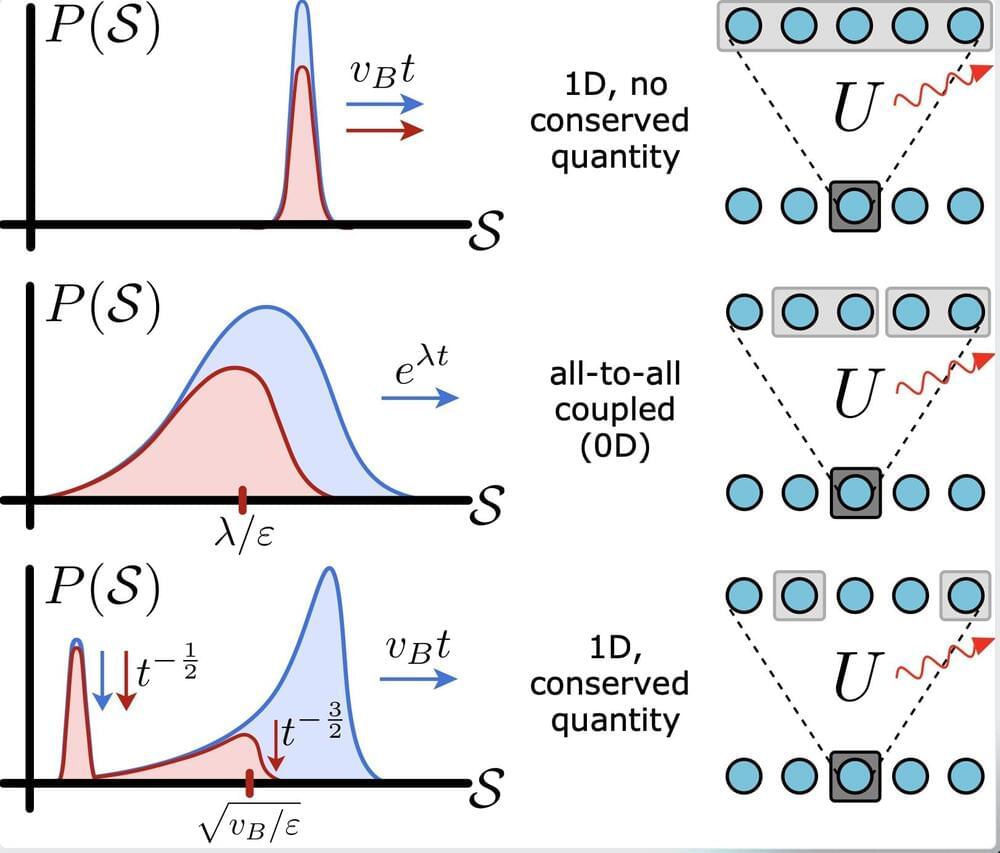In recent years, physicists have been trying to better understand how quantum information spreads in systems of interacting particles—a phenomenon often referred to as “scrambling.” Scrambling in closed systems, physical systems that can only exchange energy with degrees of freedom within the system, is a characteristic feature of chaotic many-body quantum dynamics.
In open systems, which can exchange both energy and matter with their surroundings, scrambling is influenced by various additional factors, including noise and errors. While the effects of these additional influences are well-documented, leading for example to decoherence, how they affect scrambling remains poorly understood.
Two researchers from the University of California Berkeley (UC Berkeley) and Harvard University recently introduced a new framework, published in Physical Review Letters, that provides a universal picture for how information scrambling occurs in open quantum systems. Their framework offers a particularly simple viewpoint on how to understand and model the propagation of errors in an open quantum system and might already help to explain some previously puzzling observations gathered in magnetic resonance experiments.
